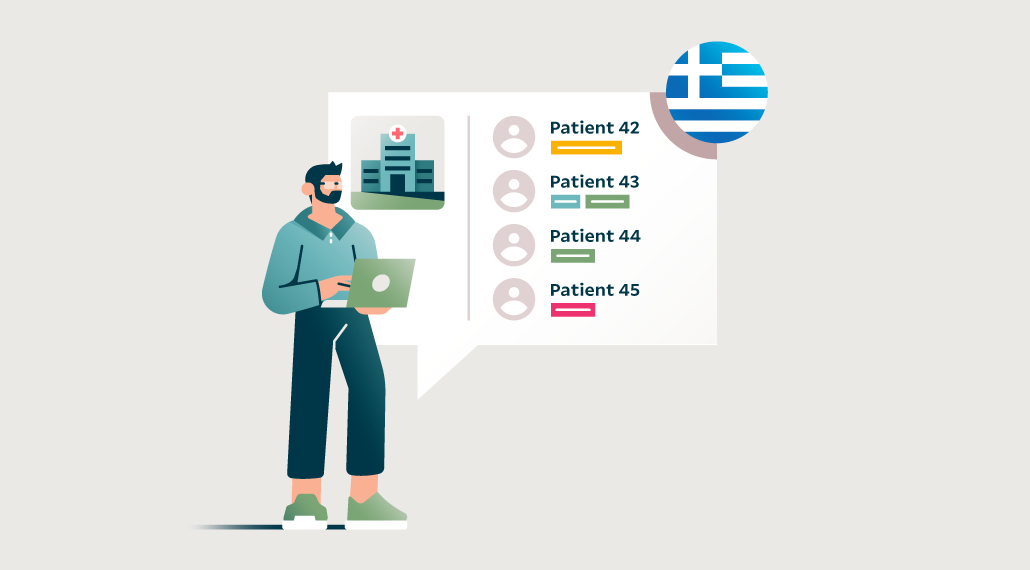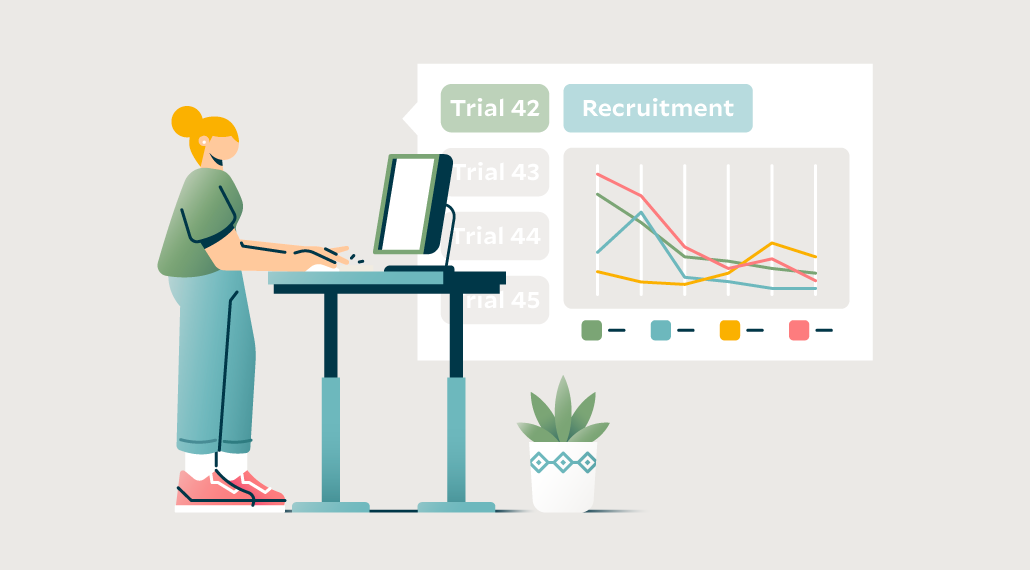June 27th, 2024
3 Principles Behind StudyTeam’s API: How Does It Benefit Sponsors, Sites, Patients, and Patient Recruitment Vendors?
By OneStudyTeam
.png)
It’s a common problem in the clinical trial solutions space: Studies are supported by a set of vendors who are best-in-class in their respective areas, but often we find vendors performing duplicative work and competing processes. Unfortunately, this creates disparate products and workflows for research sites, discrepant reporting for sponsors, and it negatively impacts the patient experience – which ultimately hurts trial enrollment.
At OneStudyTeam, we build technology to solve challenges in the clinical trial space and to accelerate therapeutic development. Our core product, StudyTeam, enables easier data sharing between sites and sponsors earlier in the recruitment and enrollment process. Importantly, we want to ensure that our product integrates seamlessly with patient recruitment vendors that are also working on our trials to deliver better outcomes for sponsors, sites, and most importantly, patients. This is why we built StudyTeam’s API.
What is StudyTeam’s API?
We launched StudyTeam’s API in 2019 in an effort to streamline and remove bottlenecks of the recruitment and pre-screening process for sites and sponsors. In general, an API, or application programming interface, is a set of protocols and tools enabling software applications to communicate with each other.
StudyTeam’s API allows patients from all different sources – such as recruitment vendors, landing pages, sponsor digital assets etc. to be sent directly to sites via StudyTeam, a system where sites are already tracking pre-screening efforts from their own database of patients.
Our goal is to streamline sites’ workflows by minimizing their need to log into various portals and channels, ultimately ensuring that patients are not falling through the cracks and studies can enroll more reliably and faster. This enhanced workflow then provides sponsors with transparent and actionable insights to evaluate all patient sources through a single pane of glass.
Here are the 3 leading principles of why we built StudyTeam’s API – and how it supports every stakeholder.
(1) We believe in an open API ecosystem because it benefits all parties and improves the way clinical trials are executed.
This ecosystem allows sponsors to select best-in-class vendors that are targeted for their particular studies. Within our ecosystem, we cultivate strong relationships with a breadth of recruitment vendors who specialize in a variety of patient recruitment strategies including focused digital marketing, community level patient advocacy and direct-to-patient oncology recruitment. So no matter what the enrollment goals are for a sponsor, they can work with recruitment vendor(s) that are experts in the recruitment strategy that fits that sponsor’s trials. This benefits the sponsor because the recruitment vendor is equipped to address their particular enrollment challenges, driving the highest-quality patients to their research sites to meet or exceed timelines.
When sponsors are able to select the vendor(s) that are best suited for their trials, sites can feel confident that they are receiving high-quality and interested patients, and vendors can hand off their patients knowing that the sites are prepared to receive them. Through the delivery of patients into StudyTeam for Sites, we are strengthening this point of handoff for vendors, allowing their expertise to shine as they drive successful recruitment campaigns for sponsors and sites alike.
Ultimately, this benefits the most important stakeholders: patients. We work with recruitment vendors who are experts in reaching and engaging patients where they are, from specific communities to online touchpoints. A patient's access to trials improves when vendors make it easy for them to self-identify and pre-screen for trials, and through StudyTeam’s API, patients are less likely to fall through the cracks. This ensures that any patient that is interested in learning more is successfully connected to a site near them.
(2) StudyTeam’s API is flexible, easily accessible, and easy to use.
It is critical to our mission that StudyTeam's API is public and easily accessible for recruitment vendors to access at no cost. To speed up the integration process, our API documentation is available online for review. Once ready to integrate, we connect each recruitment vendor to a OneStudyTeam expert to troubleshoot questions, and conduct thorough testing.
While establishing an API connection can sometimes be time-consuming for development teams, we provide simplified designs and detailed documentation to make connecting quick and easy. Additionally, as the API is enhanced, new API releases are well documented in the change log.
We recently partnered with Leal Health, a company that delivers an AI-powered, patient-centric approach to recruitment on oncology trials. Leal Health’s experienced development team was able to establish a connection through StudyTeam’s API in just two weeks.
“We found the process of integrating with StudyTeam’s API to be the best we have had,” said Noam Barnea, Vice President of Research and Development at Leal Health. “We found the documentation to be very clear and easy to navigate, and OneStudyTeam’s Partnerships team was helpful in troubleshooting all questions. We were able to integrate on a short timeline, which allowed us to meet our launch goal without delays.”
(3) StudyTeam’s API allows for multi-directional data flow to ensure that de-identified data is fully transparent for all parties involved.
When sites receive referrals directly in their databases from recruitment vendors, their actions with those referrals – moving them into pre-screening, scheduling their visits, marking them as pre-screening failures, etc. – are reported out to both the relevant vendor and sponsor. That means that by updating referral statuses in one system, sites provide critical information through the API to guide the direction of the recruitment campaign. With these insights, both recruitment vendors and sponsors can take data-driven actions to improve recruitment outcomes.
Patient recruitment vendors receive events back in real-time through our Reporting API that shows recruitment progress for the referrals they have provided, such as how those referrals are progressing through the enrollment funnel per channel. Additionally, vendors get critical insights including:
- Planned screening date
- I/E criteria failure reasons
- Reasons not screened
- IxRS Subject IDs
Using these insights, vendors can more effectively guide their site and patient engagement strategies, or adjust their pre-screening efforts to identify referrals that are more likely to qualify for the trial.
Ultimately, the streamlined workflows and transparency into recruitment progress created by StudyTeam’s API enables better visibility, collaboration, and recruitment improvements across all stakeholders. Patient recruitment vendors benefit from the open API because they can use reporting insights to optimize their referral strategies with data-driven decisions while recruitment is ongoing. Sites benefit from the streamlined connection it creates between them and the recruitment partner. Sponsors benefit from the open API because their sites receive high-quality referrals in their existing workflow and because they can view recruitment progress. This enables them to communicate effectively with their recruitment vendors when there’s an opportunity for optimization.
Ready to partner with us?
OneStudyTeam is always eager to partner on new and innovative integrations that can further relieve pain points for sites, provide better trial data for sponsors, and improve outcomes for patient recruitment vendors. Reach out to our Partnerships team to take the first step. Email: partnerships@onestudyteam.com.
Related Posts

How Does a Trial Manager in Greece Improve Clinical Trial Operations with StudyTeam®?
Dimitris Tziogas, local trial manager at a biotechnology company in ...
Read More
How to Address Key Clinical Trial Challenges, According to Clinresco Centres in South Africa
There’s no single solution to overcoming a research site’s specific ...
Read More
3 Clinical Trial Billing Challenges Research Sites Solve with StudyTeam
Challenge 1: Complicated coverage analysis Challenge 2: Tedious budgeting ...
Read More
.png?width=64&name=OST%20Transparent%20(1).png)